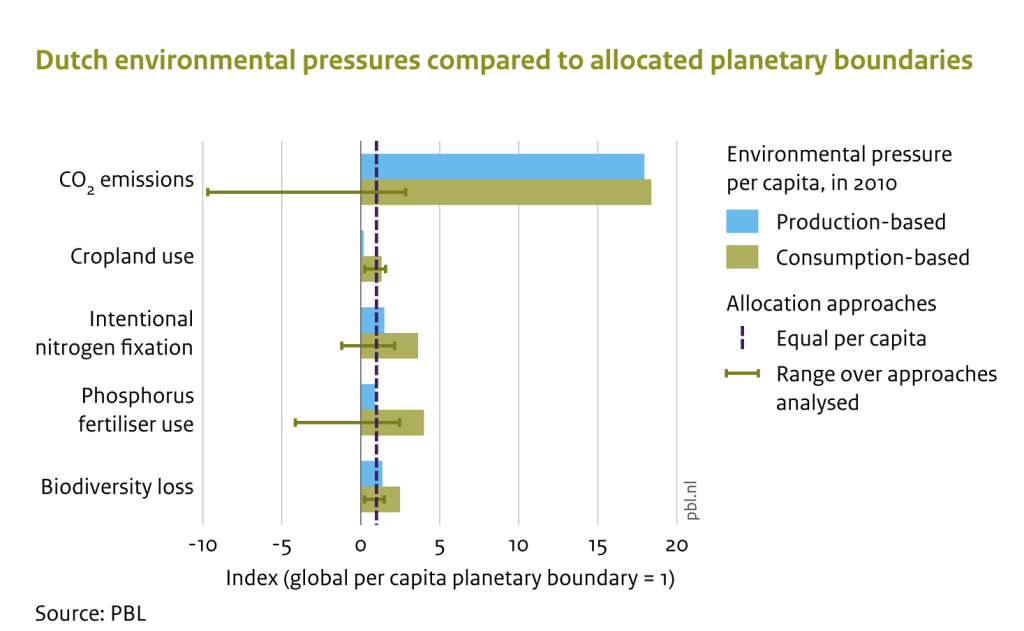Towards a safe operating space for the Netherlands
This policy brief discusses normative choices in setting national policy targets that are in line with SDG ambitions related to global environmental challenges. Based on scientific insights into planetary boundaries, fair and equitable distribution and national footprints, the report concludes that the Netherlands is not living within its safe operating space.
The 2030 Agenda for Sustainable Development calls on governments to translate global ambitions of the Sustainable Development Goals (SDGs) into national targets and policies. However, the 2030 agenda is unclear about the level of global environmental change that would need to be avoided, and provides little guidance on how such a translation should be conducted. Building on the rich literature on planetary boundaries, fair and equitable distribution and national footprints, this study discusses normative choices that are needed for translating global environmental limits to national levels and what the various choices would mean for the Netherlands.
Normative decisions on global limits, distributive fairness and national responsibility
Setting global quantitative targets involves normative decisions related to risk acceptance, solidarity and precaution. Scaling these global targets to national levels, requires normative choices with respect to equity, environmental justice, burden sharing, and allocation of scarce resources. Finally, designing national targets and policies requires normative decisions with respect to the environmental pressures that are taken into account, either related to national territory or over the whole value chain, including pressures abroad (footprints).
Creating a national safe operating space
The planetary boundaries framework proposes maximum levels of global environmental change for nine critical Earth System processes. Together they define a global ‘safe operating space’ for human development. The framework can support global target setting. Translating global limits, on the basis of planetary boundaries, essentially subdivides the global safe operating space. In climate change negotiations and the literature, many allocation approaches for fair and equitable allocation of global emission reductions have been proposed and analysed. Applying these approaches results in large differences between countries and planetary boundaries.
The Netherlands is not living within its safe operating space
Dutch environmental footprints per capita are much larger than the global average. Furthermore, a large share of the environmental pressures beyond national borders relates to agriculture in other countries, such as cropland use, nutrient pollution and biodiversity loss. Despite the large range resulting from alternative allocation approaches, most allocation results are lower than the current Dutch environmental footprints. Thus can be concluded that the Netherlands is not living within its safe operating space.

Authors
Specifications
- Publication title
- Towards a safe operating space for the Netherlands
- Publication date
- 12 July 2018
- Publication type
- Publication
- Publication language
- English
- Product number
- 3333